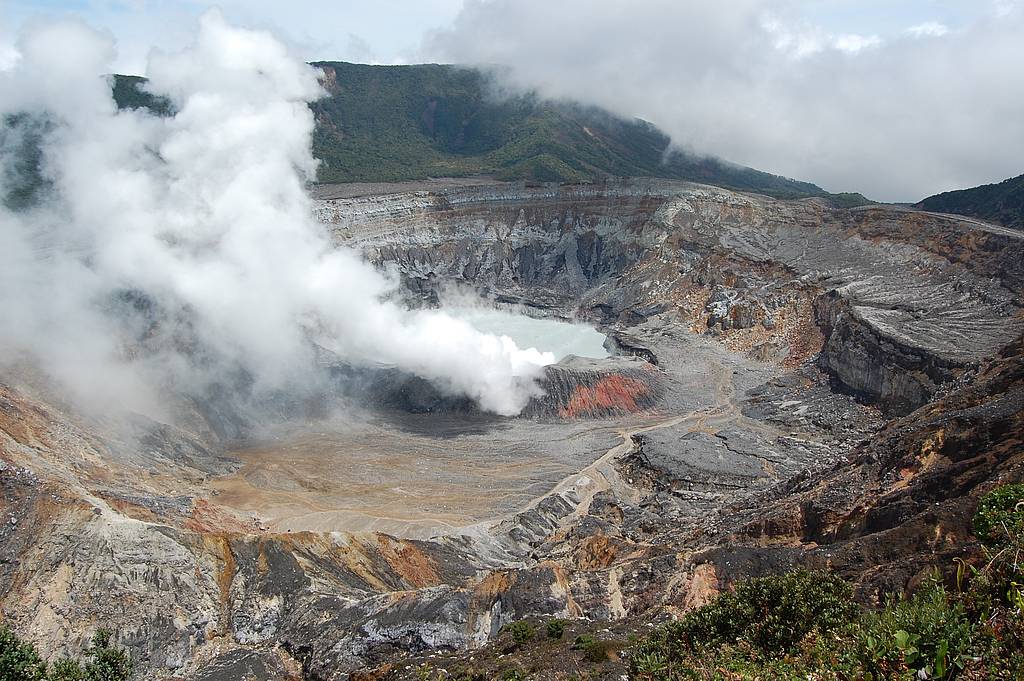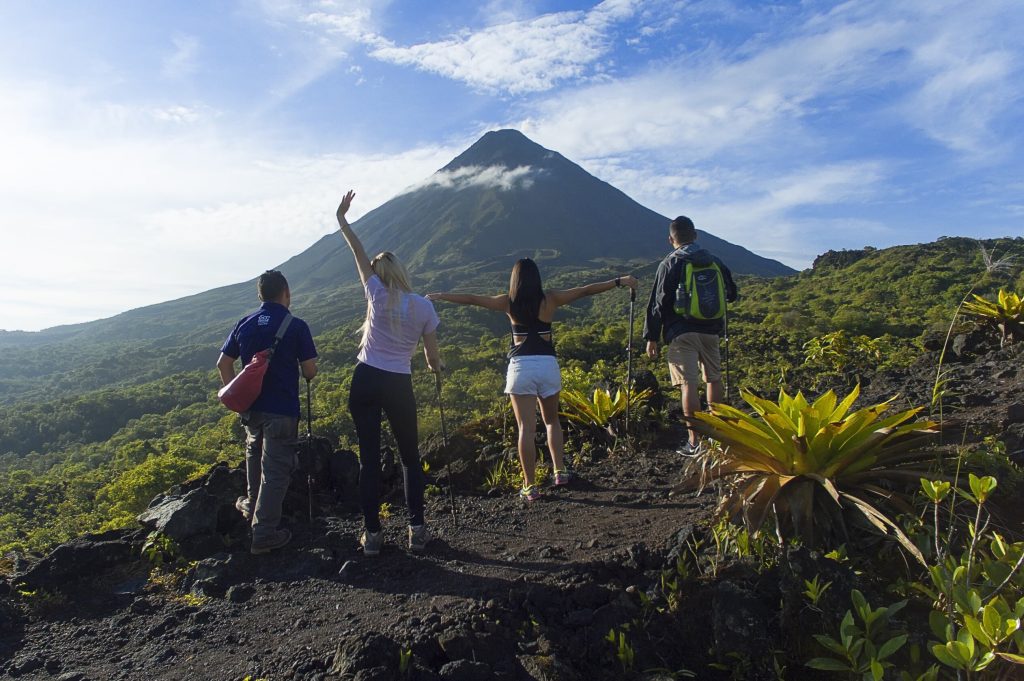Costa Rica is a dream travel destination for anyone looking for pure nature, colorful wildlife, and relaxation. Hardly any other country on earth combines as many natural treasures and animal species as Costa Rica. You can pass the time lying under a palm tree on the deserted beach or by taking a refreshing bath while listening to the toucans, monkeys, and macaws.
Since Costa Rica is home to almost 900 bird species, you may want to pack both a good camera and binoculars. Many of the birds sit in the treetops and to an untrained eye can be hard to spot. Imagine looking through the lens at the bird of the gods, Quetzal, observing its graceful creature calmly and from a distance. The majestic bird is not disturbed and you can linger and dream while observing its beauty.
Have you ever seen a sloth up close? These slow creatures are just as much in the trees as birds. Catch one with binoculars and sit back to watch it hang out and eat. It is amazing if you get to see a mother sloth and her cub. Good binoculars are a “must have” on a Costa Rica vacation.
The official currency is the colón, but often prices are given in US dollars. You can pay with dollars almost everywhere. We recommend that you bring cash in US dollars and a credit card (ie. VISA or Mastercard) with you especially if you have booked a rental car because you will likely have to make a security deposit. You can exchange money in most cities. All major cities have ATMs where you can withdraw money with credit cards or bank cards and never trade with private individuals. Costa Rica is not typically cheap as a travel destination. Calculate about $20-35 US dollars per person for meals and spending per day.
US citizens and many other nationalities can enter Costa Rica visa-free with a passport for a stay of up to 90 days. Check with your Federal Foreign Office of regulations for your home country. When entering the country, the passport only has to be valid for the day of entry and the following day, but other regulations of the respective country apply when traveling on to other countries or traveling there and back through other countries (including transit). It is recommended that your passport is valid for at least 6 months. Since the entry regulations can change continuously, we assume no liability for the correctness of the information given here so please check with your local authorities.
Vaccinations are not mandatory for Costa Rica, but hepatitis A and typhoid are recommended. A malaria risk only applies regionally with general protective measures. A moderate year-round malaria risk exists in rural areas below 700 meters in the provinces of Alajuela, Guanacaste, Puntarenas and Limon. The capital San José and areas above 700 meters are malaria-free.
Remember to get all vaccinations on time and to follow the instructions of the health department. You should ask your doctor about vaccinations at least two months before the trip, otherwise it will be difficult to get a vaccination before departure.
Costa Rica is a country with mosquitoes so protect yourself against them. It is advisable to wear mostly light-colored clothing with long sleeves and pant legs because dark colors attract mosquitoes. You may want to cover uncovered parts of the body with mosquito repellent.
With a cell phone or smartphone without SIM lock, you can buy a Costa Rican prepaid SIM card and add minutes to use data as much as you desire anywhere. Many phone companies offer international plans for an additional fee. Wifi is widely available in hotels and other public places.
A little tip:
In many hotels you can leave your laundry to be washed. You can also buy nice t-shirts everywhere so you might not need to take a lot of clothes with you.
Costa Rica is a well developed and safe travel destination. Nevertheless, we advise our guests to pay attention and use caution. The gap between rich and poor is relatively large in Costa Rica as in all Central American countries, so adapt your behavior accordingly. You can experience a dream holiday by following the following simple suggestions.
Explore options for getting around Costa Rica.

Don’t know when to visit? Find out more about the best times to travel to Costa Rica based on weather or flora and fauna.

Several species of monkeys live in Costa Rica as well as the cute sloths, agoutis, coatis and many more. Discover them here!

What makes Costa Rica a special travel destination? Find out here about the characteristics of this tropical paradise and what types of travel we offer.
We are your contacts for a successful stay in Costa Rica and look forward to your inquiries: info@costaricainsider.com